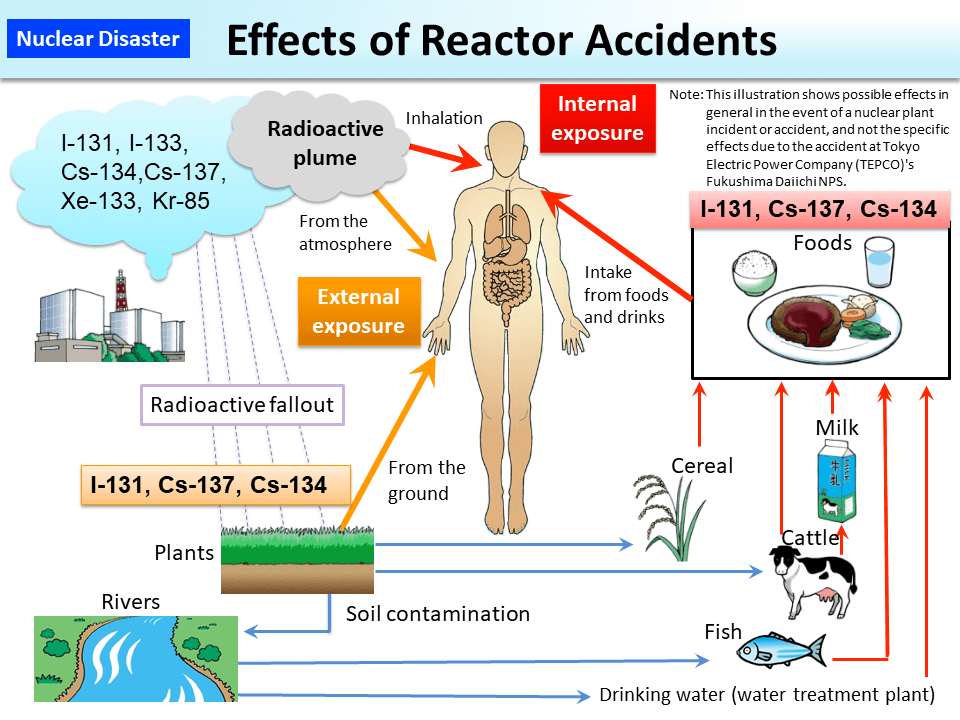Effects of Reactor Accidents
If an emergency happens in a nuclear facility and radioactive gas leaks, it flows into the atmosphere in a state called "plume."
Plumes may contain radioactive noble gases and particulates such as radioactive iodine or Cesium-137.
Radioactive noble gases (krypton, xenon) are not deposited on the ground, and even if they enter the human body through inhalation, they do not remain in the body. However, people receive radiation emitted from radioactive materials contained in a plume passing overhead. This results in "external exposure." Radioactive iodine and cesium are deposited on the ground surface while a plume passes. Therefore, external exposure from deposited radioactive materials may occur even after the plume has passed.
Internal exposure can also occur if one directly inhales radioactive materials while a plume passes or if one consumes drinking water or foods contaminated with deposited radioactive materials.
(Related to p.23 of Vol. 1, "Internal and External Exposure," and p.30 of Vol. 1, "Products in Nuclear Reactors")
- Included in this reference material on March 31, 2013
- Updated on March 31, 2015

